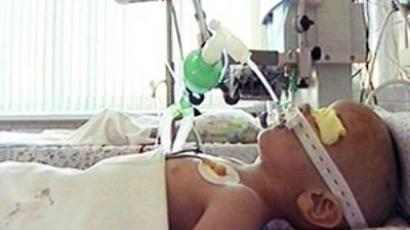Stab vests in UK schools as teen crime surges
2008 was Britain’s worst-ever year for teenage crime, with one youngster killed every five days.
Last year saw record levels of teenage crime in the UK, with a youngster killed on Britain’s streets every five days. And, just a few months into 2009, six teenagers have already been murdered in the capital. Police say they have now put the problem at the top of their national priority list.
Leaving the statistics behind
There are also more stop-and-search operations running in the capital than at any time before. Critics say the method only serves to intimidate and alienate young people, while its supporters believe it’s the only tactic which works.
As night falls, the streets in some districts become increasingly dangerous, and those dealing with teen crime on the ground say as many as four out of every five incidents are not being reported to the police, leading many to believe the problem is far worse than the official statistics claim.
‘Better safe than sorry’
The Active Change Foundation in East London was set up to actively prevent violence between teenage gangs. The kids at the centre say they used to carry knives, but for their own protection. But tragedy seems to form part of their daily lives.
“I had a friend who died last year and someone we knew died a week ago,” said 17-year-old Peejay Spence.
“Some people carry knives to feel big – most of the time people carry them for protection. I did it in the past. I feel if someone comes to me – and I have a knife they might think twice.”
Staying in the Active Change Foundation centre is a welcome change for 15-year-old Mario Miller, who used to wear a stab-proof vest to school.
“There are millions of reasons why people die. And one knife stab could kill you. So I though it’s better to be safe than sorry!”
A helping hand
Mike Jervis, who established the foundation after his own son was stabbed five times, says gang rules are to blame.
“Some people can walk away. But if you come from a gang culture, the gang culture says that you don’t walk away,” he says.
“You have to stand up to the conflict. You have to retaliate – that brings you to the knife, so we have taken people away from that mindset.”
Mike is also Chief Executive of the “Damilola Taylor Trust”, named after the 10-year-old boy who died after being stabbed with a broken bottle. His case dominated British news and became the key example of the growing problem of teen crime in the UK.
Damilola’s father, Richard, recently became an advisor on knife crime to Prime Minister Gordon Brown.
But hip hop singer Elijah Kerr, also known as JaJa Soze, who used to be a leader of a teenage gang in Brixton in the 1980s, says the issue is nothing new.
“When I was growing up I used to always hear about people getting stabbed – but it wasn’t in the news or nothing if they died. My friends that died, they weren’t in the news or nothing, they died and that was it.”
JaJa now devotes his time to helping youngsters help themselves through music. PDC – Poverty Driven Children – has turned from a teenage gang into a hip hop band. And, having gone through prison himself, JaJa Soze wants others to avoid a similar fate – or worse.













